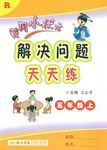题目内容
_____ in the chimey for five hours, the thief looked very pale and tired.
A.Having been trapped B.Being trapped C.trapping D.Having trapped
A

 黄冈小状元解决问题天天练系列答案
黄冈小状元解决问题天天练系列答案 三点一测快乐周计划系列答案
三点一测快乐周计划系列答案About 12,000 years ago- long before the famous UFO crash make headlines in America—an alien spaceship crashed in China. And their descendants are still living in a faraway Chinese village today! That is the mind-bending claim made in the new book Out of Time and Place, a collection of reports from the files of Fate, a magazine edited by Terry O’Neil.
The story first came to light in 1937 when an expedition led by Chi Pu-Tei came across a group of caves deep in the Bayan-Kara-Ula Mountains. In the caves were found strange-looking skeletons with big heads and small, slender bodies—closely matching typical descriptions of space aliens. The explorers also uncovered 716 mysterious stone discs with strange hieroglyphics(象形文字) on them.
In Qinghai Province, where the mountains lie, ancient stories tell of small, skinny beings with oversize heads who came from the sky long long ago. And to this day, locals live in fear of attack from strange-looking creatures from above.
And there is more. In 1947, British scientist Karyl Robin-Evans led an expedition into the mountains and discovered a group of dwarfs(侏儒) who called themselves the Droza. “They told him that their ancestors came from a planet in the Sirius(天狼星)system and crashed in this mountain area a long time ago,” writes Hausdorf, “Many of them were killed, but survivors adapted to living on this rough planet far from home.”
For decades, Robin-Evans’ claims were dismissed as nonsense. But in 1995, the Associated Press reported that in the region a village named Huilong had been discovered—populated by 120 dwarfs ranging from 3-foot-10 to 2-foot-1tall.Hausdorf asks, “Could these people be the last living descendants of the survivors of the legendary UGO crash—the Chinese Roswell?”
1.Which of the following are the findings of Chi Pu-Tei?
a. strange-looking skeletons b. UFO crash
c. stone discs d. dwarfs
e. strange hieroglyphics f. skinny beings
|
A.a, c, d |
B.c, e, f |
C.a, c, e |
D.a, b, e |
2.Paragraph 3 and 4 mainly _____.
|
A.introduce ancient stories in Qinghai Province |
|
B.show evidence of the existence of aliens in Qinghai Province |
|
C.express fears of attack from aliens |
|
D.describe the spaceship crash in China |
3.What can be safely concluded from the passage?
|
A.This passage is a piece of science news recently issued. |
|
B.Chinese are descendants to the survivors of the alien spaceship crash |
|
C.The UFO crash in the Byan-Kara-Ula Mountains has recently been seen |
|
D.Many people are curious about aliens from outer space |
4.What is most likely to be discussed in the paragraph that follows?
|
A.Recent research about the Chinese Roswell. |
|
B.News stories about Roswell UFO Crash. |
|
C.Chi Pu-Tei’s discovery in China. |
|
D.Robin-Evans’ claims. |
 0 pm to 6:00 pm Free admission
0 pm to 6:00 pm Free admission